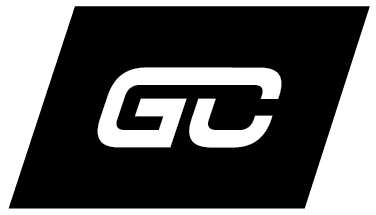All In
Athletic Identity Over Commitment
I am all in. I am an athlete. I eat, breath, bleed and sleep my sport. I block out all extraneous distractions. I don't need or even speak to people unrelated to my sport or training. All activities that don't directly or even indirectly impact how I perform on the playing surface get excluded from my life. I am all in. I am an athlete.
Is this a recipe for sustained elite athletic performance or a human train-wreck?
Very little is binary in complex human systems, and different approaches work differently for different people. However, if you were taking bets, I'd wager heavily that the probability that the development approach outlined above was, in fact, a recipe for disaster instead of elite athletic performance.
The reason why is simple. The athlete in the nightmare scenario described above, more than likely would have an athletic identity score that was off the charts. Athletic identity is the degree to which an individual identifies with the athlete role and looks to others for acknowledgment of that role (Brewer, Van Raalte, & Linder, 1993). What does that mean?
Imagine everyone you know (in your community) and those closest to you (parents, siblings, friends, etc.) see you as an elite athlete and as an athlete only. Unsurprisingly, you see yourself as an athlete. Other roles are nonexistent or not acknowledged by those in your circle of influence. Your perception of self and the value you offer others relates directly to your status as an athlete.
If you never had a bad game, an injury, a poor season and your career never ended a high AI would be great. Unfortunately, for even the best athletes a bad performance can occur. Injuries are indiscriminate and don't care if you are the greatest ever or a plug. And as everyone knows, sports has been and will remain undefeated. Meaning, no one competes at an elite level at 65.
Athletic Identity is a subject that I have researched with several colleagues for years (see articles below), and it seems to be resurfacing (it never went away) as an angle for relating to and with elite athletes.
As we've mentioned previously, any approach directed at communicating with an athlete, team management or an organization that does address the most crucial athletic component-- PERFORMANCE--is wasted breath. If you decide to talk to an 'all in' athlete about taking some time away from the game to focus on networking or education or exploring other interests, it would be akin to Cortez trying to explain to the Aztecs that the yellow metal they used for their decorations was more valuable than their hummingbird feathers.
Much like the Aztecs, the athlete just won't get it.
Athletes are people with roles, interests, concerns, and challenges beyond their sport. To optimize athletes for success ON the playing surface as well as off it is critical to encourage them to engage in interests away from their game. This process of engaging away from the playing surface serves to fragment or expand the individual's athletic identity (this expansion versus fragment has been a debate within the community, for this conversation we'll take either). This ability to step away from the game doesn't serve as a distraction or mean they aren't fully committed to their sports endeavors. You wouldn't accuse an accountant who enjoyed playing squash, or collecting stamps or brewing beer in his basement as being uncommitted to his excel sheets.
Moreover, the research is becoming increasingly clear that elite athletes that participate in activities away from sport realize performance benefits and fragment or expand their role 'pie.'
Less stress, decreased performance anxiety, longer careers, more money and less negative thought affectivity.
The conversation around AI is an important one. We need to continue to have it. Athletes honestly must be all in to be successful at the highest reaches of a sport. However, athletes that have interests beyond the game should be encouraged to explore them.
Harbor no illusions, elite athletes, and the parents of young athletes who buy into the exclusivity model presented at the beginning of this article may be all in, but on an outcome that resembles a train running out of track.
ARTICLES:
Game Change was founded in 2011 to serve and enhance the athlete development needs of major professional and elite sport organizations and athletes. Game Change specializes in customized research and assessment services, the development of applied interventions and resources designed to provide long-term positive outcomes for organizations and individual athletes. Game Change believes strongly in sport as a catalyst for societal change and adheres to the philosophy of ‘changing the world one athlete at a time’.



